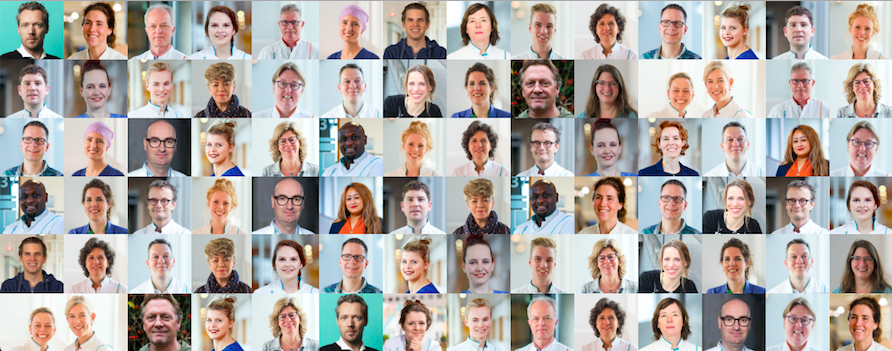PhD student 'Neural mechanisms of Parkinson’s tremor'
PhD student 'Neural mechanisms of Parkinson’s tremor'
You cannot apply for this job anymore (deadline was 27 Jun 2017).
Browse the current job offers or choose an item in the top navigation above.
Job description
Parkinson’s disease is the second most common neurodegenerative disorders worldwide. Resting tremor is one of the cardinal symptoms of Parkinson’s disease, but the pathophysiology of this symptom remains a mystery. A possible clue is the clinical observation that Parkinson’s tremor is very sensitive to acute psychological stress, which can substantially increase tremor severity. This suggests that the noradrenergic system has a role in the pathophysiology of Parkinson’s tremor. The lack of insight into the cerebral mechanisms of Parkinson’s tremor is reflected in clinical difficulties to treat this symptom – which often does not respond to medication. Recent findings suggest that transcranial alternating current stimulation (TACS) is effective in reducing tremor, but it is remains unclear how TACS influences the cerebral tremor network.
The aim of this project is to investigate the cerebral mechanisms underlying Parkinson’s tremor, using a combination of neuroimaging techniques (functional MRI) and non-invasive brain stimulation techniques (transcranial alternating current stimulation; TACS). The project will focus on two main aspects: (1) the impact of noradrenergic activity (during psychological stress) on tremor-related brain activity; (2) the impact of TACS on tremor-related brain activity (and tremor).
We are looking for a highly motivated PhD student with an interest in neurological diseases (such as Parkinson’s disease) and neuroimaging. This project combines clinical aspects (recruitment and measurement of patients) and technical aspects (brain imaging analyses). You will work at the Donders Centre for Cognitive Neuroimaging and the department of Neurology at the Radboudumc. During your PhD, you will work in team together with Dr. Rick Helmich (principle investigator and neurologist) and Drs. Freek Nieuwhof (post-doctoral fellow).
Tasks and responsibilities
Your most important task will be to successfully carry out your PhD project and develop into a successful and independent researcher. You will be in charge of recruiting patients (with help from clinicians), perform fMRI and TACS experiments, analyze the data (using also network analyses) and write scientific papers. You will present your findings at international scientific conferences. Furthermore, you will be stimulated to take part in the vivid scientific and social climate of the Donders Institute. Finally, you will have a role in supervising Master students.
Specifications
- max. 36 hours per week
- Nijmegen View on Google Maps
Requirements
You should have a Master’s degree (or equivalent) in cognitive neuroscience, biomedical sciences, psychology, medicine or related science, with a strong interest in neurological diseases and neuroimaging. Since you will be interacting with patients, mastering the Dutch language is preferred. Ideally, you have strong technical and programming skills (such as experience with Matlab), as well as experience with data analysis and statistics.
This PhD project offers you the opportunity to develop a wide range of clinical, social, scientific and technical skills. It requires a strong motivation and determination, creativity, and communicative talents, to grow into an excellent researcher. You should demonstrate the potency to be one of the emerging scientific talents of the future generation.
Conditions of employment
Fixed-term contract: The project will appoint a PhD candidate for 3 years in total. Your performance will be evaluated after 1 years according to the Donders PhD track. If the evaluation is positive, the contract will be extended by another 2 years.
You will be ranked in the Dutch university job-ranking system (UFO) as a PhD-student (promovendus).
Scale 10A: max. € 40116 gross income per year at full employment (incl. vacation bonus and end of year payments)
Employer
Radboudumc (university medical center)
The Radboudumc center advances human knowledge by conducting biomedical, translational and clinical research in order to improve wellbeing.
Our key strength is medical life-sciences and clinical practice, with an impressive infrastructure comprising state-of-the-art technology platforms and (translational) research facilities. The Radboudumc is therefore uniquely positioned in the emerging Euregio and Dutch healthcare infrastructure to play a leading role in the new healthcare paradigm of prediction, prevention and personalised medicine.
The Radboudumc focuses on scientific health challenges of today, with an eye on emerging diseases of the future.
Our mission: ‘to have a significant impact on healthcare’.
Department
The Department of Neurology
Research at the Department of Neurology is centered around three major topics including movement disorders, neuromuscular diseases and cerebrovascular diseases. Major areas of research include Parkinson’s disease, tremor and dystonia (both fundamental and clinical research). All of our research is embedded within the Donders Institute for Brain, Cognition and Behaviour. This warrants the availability of top-notch infrastructure and expertise.
The Donders Institute
The Donders Institute for Brain, Cognition and Behaviour is a world-class research centre devoted to understanding the mechanistic underpinnings of human cognition and behavior in health and disease. The Institute is home to more than 600 researchers from 35 countries who share the common goal of contributing to the advancement of the brain-, cognitive- and behavioral sciences through investigator-driven research, and improving health, education and technology by applying advances in this field.
The Donders Centre for Cognitive Neuroimaging, where all measurements and analyses take place, is an exciting social and scientific community. Since it is very internationally oriented, the main language spoken at the institute is English.
Specifications
- PhD
- Natural sciences; Health
- max. 36 hours per week
- University graduate
:fill(white)/logos/umcr-en-wide.png)
